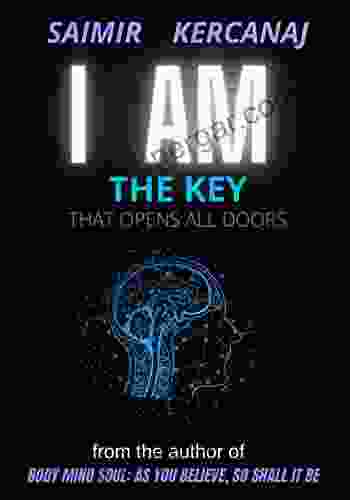Policing Prisons and the Call for Abolition: Field Notes from the Frontline

In the wake of the Black Lives Matter movement and the ongoing struggle for racial justice, the issue of prison abolition has gained significant traction. Prison abolitionists argue that the prison system is inherently racist and dehumanizing, and that it should be dismantled in favor of restorative justice and community-based alternatives.
"Policing Prisons and the Call for Abolition: Field Notes from the Frontline" is a groundbreaking book that offers a firsthand account of the prison abolition movement. Written by a collective of activists, organizers, and scholars, the book provides a comprehensive analysis of the prison system and its devastating impact on communities of color.
4.5 out of 5
| Language | : | English |
| File size | : | 807 KB |
| Text-to-Speech | : | Enabled |
| Screen Reader | : | Supported |
| Enhanced typesetting | : | Enabled |
| Word Wise | : | Enabled |
| Print length | : | 96 pages |
The book is divided into three parts. The first part provides a historical overview of the prison system, from its origins in slavery to its current role in maintaining white supremacy. The second part examines the day-to-day realities of life inside prison, including the violence, abuse, and neglect that prisoners face. The third part explores the alternatives to prison, such as restorative justice, community policing, and diversion programs.
Part 1: The History of the Prison System
The history of the prison system in the United States is inextricably linked to the history of slavery. After the abolition of slavery in 1865, the Thirteenth Amendment to the Constitution prohibited slavery and involuntary servitude, except as punishment for a crime. This loophole allowed states to continue to enslave Black people by arresting them for minor offenses and sentencing them to long prison terms.
The prison system also played a key role in the implementation of Jim Crow laws in the South. Black people were denied basic rights, such as the right to vote, serve on juries, or hold public office. They were also subject to segregation and discrimination in housing, education, and employment. The prison system was used to enforce these laws and maintain white supremacy.
In the twentieth century, the prison system expanded dramatically. The War on Drugs, which began in the 1970s, led to the mass incarceration of Black and Latino people. Today, the United States has the highest incarceration rate in the world, with over 2 million people behind bars.
Part 2: The Day-to-Day Realities of Life in Prison
Life in prison is a daily nightmare for the over 2 million people who are incarcerated in the United States. Prisoners are subjected to violence, abuse, and neglect. They are denied basic necessities, such as adequate food, healthcare, and clothing. They are often held in solitary confinement, which can have devastating psychological effects.
The prison system is also a breeding ground for disease. Prisoners are at a higher risk of contracting HIV/AIDS, tuberculosis, and other infectious diseases. They are also more likely to experience mental illness and suicide.
The conditions in prison are inhumane and degrading. They violate the most basic human rights and constitute a form of torture.
Part 3: Alternatives to Prison
The prison system is not the only way to address crime and social problems. There are many alternatives to prison that are more effective and humane.
Restorative justice is a process that brings together victims, offenders, and the community to address the harm that has been done and to find ways to repair it. Restorative justice programs have been shown to reduce recidivism and create safer communities.
Community policing is a model of policing that emphasizes relationships between police officers and the communities they serve. Community policing programs have been shown to reduce crime and build trust between police officers and residents.
Diversion programs provide alternatives to arrest and prosecution for people who are arrested for minor offenses. Diversion programs can help people get the help they need to address the underlying causes of their behavior, such as poverty, mental illness, or addiction.
The prison system is a failed experiment. It is time to dismantle the prison system and invest in alternatives that are more effective and humane.
"Policing Prisons and the Call for Abolition: Field Notes from the Frontline" is an essential read for anyone who cares about racial justice, human rights, and the future of our society. The book provides a powerful indictment of the prison system and a compelling vision for a more just and equitable world.
If you are looking for a book that will challenge your thinking, inspire you to action, and give you hope, then "Policing Prisons and the Call for Abolition" is the book for you.
Call to Action
The prison abolition movement is growing, but there is still much work to be done. We need to continue to raise awareness of the prison system and its devastating impact on communities of color. We need to support organizations that are working to dismantle the prison system and build alternatives. And we need to hold our elected officials accountable for creating a more just and equitable society.
Together, we can end the era of mass incarceration and create a world where all people are treated with dignity and respect.
Additional Resources
* [The Marshall Project](https://www.themarshallproject.org/) * [The Sentencing Project](https://www.sentencingproject.org/) * [The Vera Institute of Justice](https://www.vera.org/)
4.5 out of 5
| Language | : | English |
| File size | : | 807 KB |
| Text-to-Speech | : | Enabled |
| Screen Reader | : | Supported |
| Enhanced typesetting | : | Enabled |
| Word Wise | : | Enabled |
| Print length | : | 96 pages |
Do you want to contribute by writing guest posts on this blog?
Please contact us and send us a resume of previous articles that you have written.
 Book
Book Novel
Novel Page
Page Chapter
Chapter Text
Text Story
Story Genre
Genre Reader
Reader Library
Library Paperback
Paperback E-book
E-book Magazine
Magazine Newspaper
Newspaper Paragraph
Paragraph Sentence
Sentence Bookmark
Bookmark Shelf
Shelf Glossary
Glossary Bibliography
Bibliography Foreword
Foreword Preface
Preface Synopsis
Synopsis Annotation
Annotation Footnote
Footnote Manuscript
Manuscript Scroll
Scroll Codex
Codex Tome
Tome Bestseller
Bestseller Classics
Classics Library card
Library card Narrative
Narrative Biography
Biography Autobiography
Autobiography Memoir
Memoir Reference
Reference Encyclopedia
Encyclopedia Veronica Boutelle
Veronica Boutelle Ward Preston
Ward Preston Thom S Rainer
Thom S Rainer Shari Low
Shari Low Ricky Telg
Ricky Telg Suzanne E Harrill
Suzanne E Harrill Scott Eblin
Scott Eblin Robert A Esperti
Robert A Esperti Roy Godson
Roy Godson Wendy S Enelow
Wendy S Enelow Shawn Pardazi
Shawn Pardazi Robert J Sternberg
Robert J Sternberg Scott Thorson
Scott Thorson Winter Morgan
Winter Morgan Ryan Wiersma
Ryan Wiersma Tom Hierck
Tom Hierck Robert P Watson
Robert P Watson Sandra Spurgeon J D
Sandra Spurgeon J D Tom Cotter
Tom Cotter Tatiana Borsch
Tatiana Borsch
Light bulbAdvertise smarter! Our strategic ad space ensures maximum exposure. Reserve your spot today!
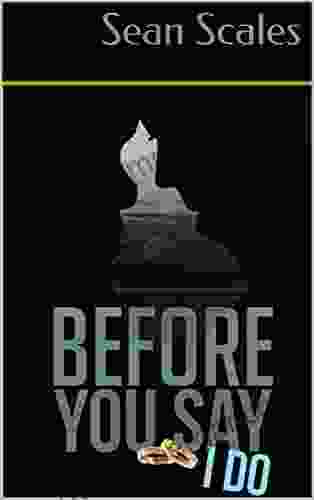
 Nick TurnerUnlock the Secrets of Effective Communication: Delve into "Before You Say Do"...
Nick TurnerUnlock the Secrets of Effective Communication: Delve into "Before You Say Do"...
 Johnny TurnerThe Shocking True Story Of Richard Ramirez: The Serial Killer Whose Murderous...
Johnny TurnerThe Shocking True Story Of Richard Ramirez: The Serial Killer Whose Murderous...
 D'Angelo CarterBreastfeeding In Combat Boots: A Mother's Inspiring Journey of Strength and...
D'Angelo CarterBreastfeeding In Combat Boots: A Mother's Inspiring Journey of Strength and... Craig CarterFollow ·12.5k
Craig CarterFollow ·12.5k Enrique BlairFollow ·18.8k
Enrique BlairFollow ·18.8k Gil TurnerFollow ·3.4k
Gil TurnerFollow ·3.4k Christopher WoodsFollow ·4.3k
Christopher WoodsFollow ·4.3k Pat MitchellFollow ·7.4k
Pat MitchellFollow ·7.4k Bryan GrayFollow ·17.2k
Bryan GrayFollow ·17.2k Robert Louis StevensonFollow ·17.7k
Robert Louis StevensonFollow ·17.7k Milton BellFollow ·8.7k
Milton BellFollow ·8.7k
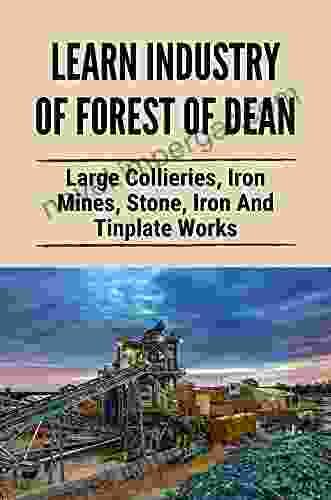
 Colt Simmons
Colt SimmonsLarge Collieries Iron Mines Stone Iron And Tinplate...
Step back in time and witness...
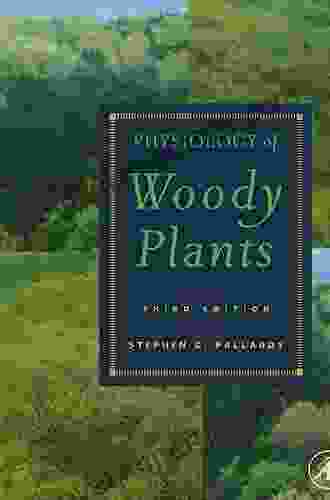
 Zachary Cox
Zachary CoxUnlocking the Secrets of Woody Plants: An In-Depth...
: Embark on a captivating journey into the...

 Yasunari Kawabata
Yasunari KawabataIntroducing 'Librarian Guide: 3rd Edition' – The Ultimate...
In the dynamic and ever-evolving...

 Jerome Blair
Jerome BlairEvading Honesty: A Masterful Exploration of Deceit and...
Prepare to be captivated...
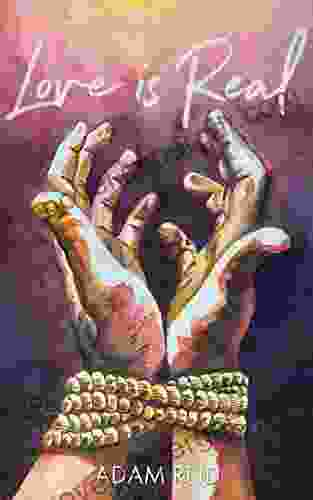
 Timothy Ward
Timothy WardLove Is Real: A Novel of Love, Loss, and the Enduring...
Prepare to embark on a...
4.5 out of 5
| Language | : | English |
| File size | : | 807 KB |
| Text-to-Speech | : | Enabled |
| Screen Reader | : | Supported |
| Enhanced typesetting | : | Enabled |
| Word Wise | : | Enabled |
| Print length | : | 96 pages |





